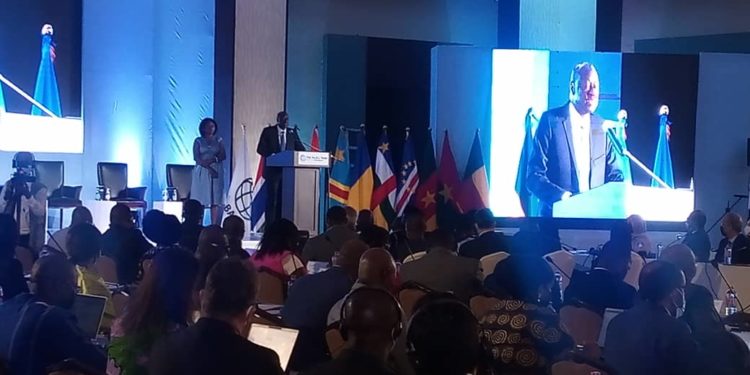Education systems in Western and Central Africa in crisis, World Bank says
The World Bank has said education systems in Western and Central African countries are currently in crisis given the fact that 80% of 10-year-old children in the sub-region are unable to read and understand a simple text, and more than 32 million children are out of school, which represents the largest share of all regions worldwide.
The region’s poor education systems, according to Ms Yevgeniya Savchenko, the World Bank Task Team Lead on its education strategy report, has further been worsened by the Covid pandemic.
Making a technical presentation on the World Bank’s regional education strategy for Western and Central Africa titled “From School to Jobs: A Journey for the Young People of Western and Central Africa” at a regional ministerial meeting on June 27, Ms Yevgeniya Savchenko averred given the current state of the region’s education systems, it was critical to develop a strategy to rally key stakeholders around the region to tackle the crisis, which if not addressed now, will have long lasting implications for future generations.
“This is a regional strategy to improve learning outcomes and it requires a whole of government and society approach,” she stated.
According to Ms Yevgeniya Savchenko, the Bank’s education strategy for the region constitutes a comprehensive roadmap with ambitious yet achievable targets and outcomes.
The strategy also has explicit focus on strategic leadership, governance and finance with recommended set of high impact interventions from African governments.
The selection of these high impact interventions, she stated, was based not only on international practices, but most importantly rooted in studies done in the region and innovations coming from the region, which can be easily scaled up and translated from country to country and sub-region to sub-region.
The vision of the Bank’s education strategy she noted, is to ensure that all girls and boys arrive at school ready to learn, acquire quality education and are ready to enter the job market with the right skills to become productive and fulfilled citizens.
The World Bank seeks to reduce learning poverty in Western and Central Africa by bringing in 30 million more children and making them able to read and understand simple text by 2030.
The World Bank is also focusing on empowering girls through schooling, to ensure that 12.5 million more adolescent girls are enrolled in schools by 2030.
Additionally, the Bank is looking at expanding access to job relevant skills, technical vocational education and higher education by ensuring that 3.7 million additional youth are trained in basic skills, and one more million in digital skills.








